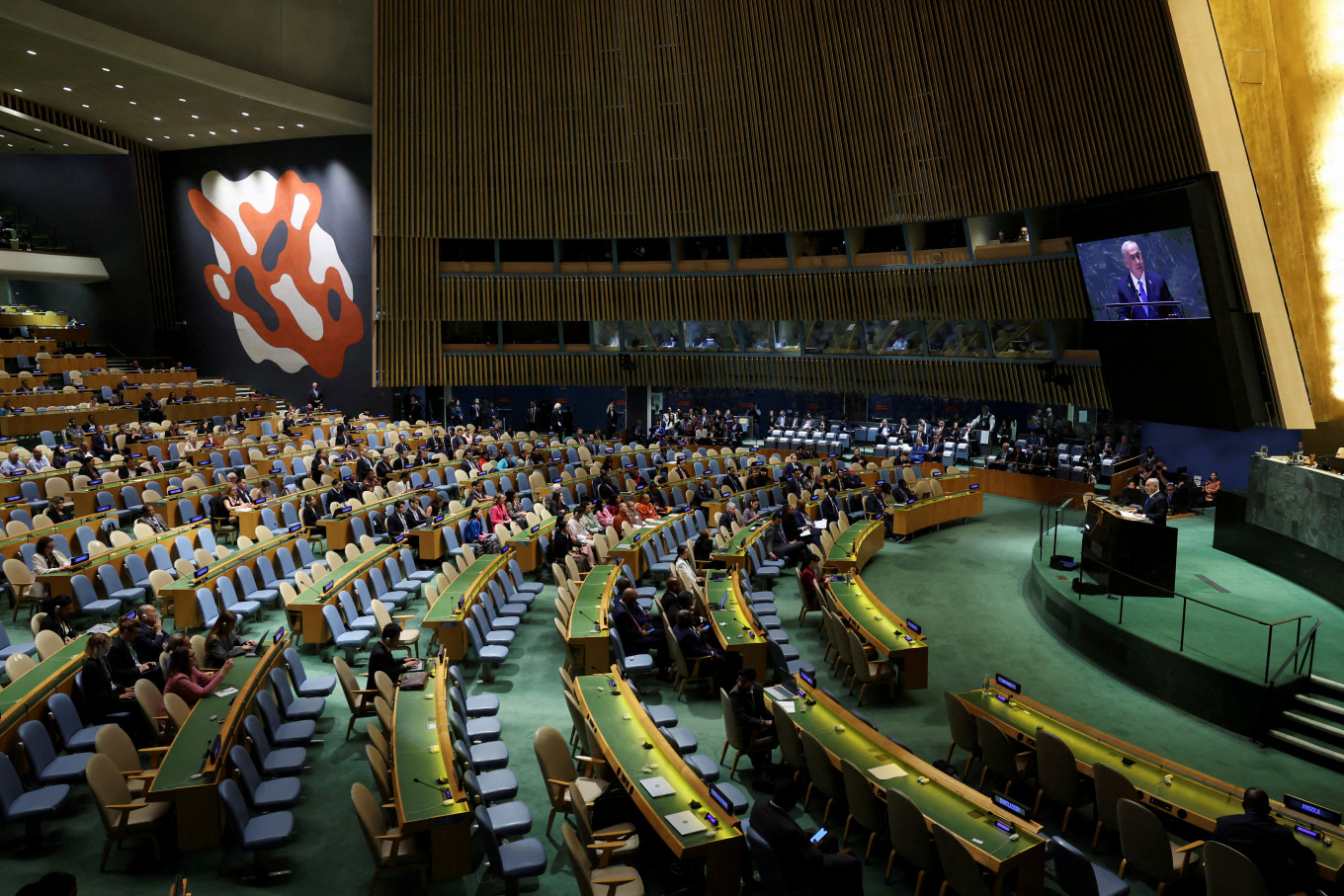Popular Reads
Top Results
Can't find what you're looking for?
View all search resultsPopular Reads
Top Results
Can't find what you're looking for?
View all search resultsWestlessness: The decline of a decades-long moral empire?
The West's actions, particularly in the Middle East and its neglect of the Global South, have fueled a deepening crisis of trust.
Change text size
Gift Premium Articles
to Anyone
“Westlessness” is a current phenomenon marked by the declining influence of Western countries to lead the world they once shaped. It is reflected in the erosion of the West's moral authority, which has traditionally been a cornerstone of the West’s global leadership.
Coined by Tobias Bunde at the Munich Security Conference in 2020, the term describes how the world becomes less Western. It does not refer to the complete disappearance of Western influence, but rather to the diminution of the West as a geopolitical anchor in the existing normative global framework.
Similarly, in Westlessness: The Great Global Rebalancing (2024), Samir Puri frames the concept as the diminishing share of the “global pie” held by Western nations. In the book that inspired this article, Puri envisions a future where the global landscape is more diverse, with Western narratives, values and reputation increasingly scrutinized and contested.
Western nations now face a profound rivalry of values, as they compete to maintain a legitimate claim to moral authority.
Moral authority refers to the perceived ability to guide through action, rooted in values and actions. Unlike “power”, which relies on coercion to control behavior, moral authority inspires others to follow through trust and confidence. In this regard, former United States president Joe Biden has stated that the West leads not by the example of its power, but by the power of its example.
Establishing moral authority depends on credibility. It is the cornerstone of moral leadership. Based on this credibility, a leading state can earn the voluntary acceptance of its leadership.
Credibility is earned by consistently honoring commitments, particularly those aligned with international rules, norms and moral values. It can only be sustained when there is trust and confidence that international leadership will uphold these norms in future circumstances.
Against this backdrop, the West must secure the trust and confidence of enough states to maintain its credibility. This is essential for preserving the moral authority of the West.
However, in reality, the West has used its dominant voice in global politics to advance a hegemonic agenda. Henry Kissinger describes this agenda as “missionary” in his book On China. Driven by a “crusader mentality”, the West perceives spreading its values worldwide as a moral duty. This mentality has contributed to a crisis of credibility that impairs the West’s moral authority.
The moral authority of Western nations, much like the power exercised by an empire, has traditionally relied on their hegemonic power and the belief in their moral superiority. Over time, this sense of Western hubris has become normalized.
The West often views its culture and values as the ultimate standard. This view is built upon an imperial assumption that only Western societies possess the intellectual privilege to create “magical values” that drive economic growth and political stability.
However, the West's actions, particularly in the Middle East and its neglect of the Global South, have fueled a deepening crisis of trust. A growing disconnect between the West's rhetoric and its actions has significantly undermined its credibility.
While the West works to maintain its credibility with allies, the West often adopts a “law of the jungle” approach toward non-allies. However, surprisingly, the US currently appears indifferent to the need to preserve its credibility with some of its own allies. This highlights a deeper crisis, which can be described as “moral schizophrenia”.
The West’s greatest challenge currently lies in its response to the humanitarian catastrophe in Gaza. Despite advocating for a “rules-based order”, many Western nations hesitate to condemn Israel’s breaches of international law. The silence, or even tacit support, of some Western nations in the face of these actions exposes a glaring double standard.
As a result, the West now faces moral challenges both at home and in its relations with the Global South. Governments that continue to support Israel’s military actions are becoming increasingly isolated in forums like the United Nations General Assembly, highlighting the growing divide.
In this context, the term “Westlessness” becomes more relevant as it underscores the legitimacy crisis facing the West. The growing cynicism and skepticism further weaken the West’s moral standing in a world that is no longer dominated by Western ideals.
In turn, this shift emboldens nations in the Global South, including Indonesia, to push for an international order that is more inclusive and diverse.
As the West’s moral authority wanes, the global landscape is changing. Westlessness represents a shift from a world once led by liberal ideals to a more diverse and multipolar order.
Emerging powers like Brazil, China, India and Indonesia are now seeking to play key roles. These nations are now asserting their influence by offering alternative moral narratives that challenge Western dominance.
This is not to say that the Western world will vanish, nor that Western values will lose all their appeal. Democracy, the rule of law and human rights still inspire many across the globe.
Yet, the West’s ability to define the terms of global virtue is fading as new voices rise and its own inconsistencies become more apparent. The push to redefine global values and norms is also going stronger
To stay relevant, the West must adapt to this new reality or risk further losing its influence in an increasingly contested world.
***
The writer is a senior Indonesian diplomat. The views expressed are personal.










